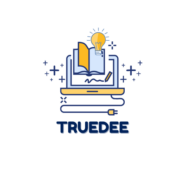As I dive into the world of adult learning, I can’t help but marvel at the unique journey each learner undertakes. The adult learning cycle isn’t just a theoretical framework; it’s a practical guide that shapes how we absorb, process, and apply new knowledge. Understanding this cycle can transform our approach to education and personal growth. In my experience, recognizing the stages of this cycle helps me tailor my learning strategies effectively. Whether it’s reflecting on past experiences or applying new skills in real-world scenarios, each phase plays a crucial role in deepening understanding and enhancing retention. Join me as I explore the intricacies of the adult learning cycle and discover how it can empower you to become a more effective learner.
- The adult learning cycle consists of four essential stages: concrete experience, reflective observation, abstract conceptualization, and active experimentation, each contributing to effective learning.
- Concrete experience involves actively engaging in a learning activity, while reflective observation focuses on analyzing thoughts and feelings post-experience for deeper understanding.
- Abstract conceptualization allows learners to connect new insights with existing knowledge to formulate theories, enhancing understanding.
- Active experimentation encourages the practical application of learned concepts, building confidence and reinforcing skill retention in real-world contexts.
- Recognizing the cycle aids self-directed learning and tailoring individualized learning experiences, promoting relevance and engagement.
- Understanding this cycle fosters collaboration and continuous improvement, adapting learning strategies to various contexts and enhancing overall personal and professional development.
Adult Learning Cycle
The adult learning cycle consists of four key stages: concrete experience, reflective observation, abstract conceptualization, and active experimentation. Each stage plays a crucial role in transforming experiences into valuable learning opportunities.
- Concrete Experience: This stage involves engaging directly in a learning activity. By participating actively, I gather firsthand knowledge, immersing myself in new contexts or situations.
- Reflective Observation: After the experience, I reflect on what occurred. This reflection enables me to analyze the events, considering my thoughts, feelings, and reactions during the experience.
- Abstract Conceptualization: In this stage, I draw conclusions and formulate theories based on my reflections. Understanding the underlying principles allows me to connect the experience with existing knowledge, enriching my perspective.
- Active Experimentation: This stage entails applying the newly acquired knowledge in real-world scenarios. By experimenting, I test theories and practice skills, enhancing my confidence and competence.
Understanding these stages helps me optimize my learning approach, facilitating deeper engagement and better retention. Integrating the adult learning cycle into my educational strategies fosters ongoing personal and professional development.
Theoretical Framework

The adult learning cycle offers a robust theoretical framework that guides personal and professional development. Understanding its key concepts and historical context enriches our learning experiences.
Key Concepts of Adult Learning
Key concepts in adult learning encompass several foundational principles.
- Self-Directed Learning: Adults take ownership of their learning journey, guiding their educational paths.
- Prior Experience: Previous knowledge influences new learning, impacting how adults interpret and process information.
- Relevance: Learning aligns with personal or professional goals, increasing motivation and engagement.
- Practical Application: Adults prefer learning that connects directly to real-world situations, enhancing skill applicability.
Each concept integrates into the adult learning cycle, shaping how adults engage with new information and experiences.
Historical Development
Historical development of adult learning theories traces back to influential thinkers.
- Malcolm Knowles: Introduced andragogy, emphasizing adult learners’ unique needs and preferences.
- David Kolb: Proposed the experiential learning theory, outlining the significance of concrete experience and reflection in learning.
- Jean Piaget: His work on cognitive development informs our understanding of how adults acquire and apply new knowledge.
These foundational theories paved the way for more contemporary explorations of adult learning, fostering a deeper appreciation for the nuances in the learning cycle. Understanding this historical context enriches my approach to adult education.
Stages of the Adult Learning Cycle

The adult learning cycle comprises four distinct stages, each contributing to effective learning and application of skills. Understanding these stages can enhance my approach to education and personal development.
Stage 1: Experience
In this stage, I engage in a concrete learning experience. This could range from participating in a workshop to taking part in a group discussion. The goal is to immerse myself fully in the activity, allowing me to gather firsthand insights and feelings that can later be analyzed.
Stage 2: Reflection
Reflection follows the experience. Here, I take time to analyze what I encountered during the learning activity. I examine my thoughts, feelings, and reactions, identifying what worked well and what could be improved. This critical assessment helps me deepen my understanding and recognize patterns or significant takeaways.
Stage 3: Conceptualization
During the conceptualization stage, I draw conclusions from my reflections. I connect new insights with existing knowledge and form theories about what these experiences mean. This could involve creating mental models or frameworks that guide my approach to similar situations in the future. It’s essential to articulate these ideas clearly to facilitate application.
Stage 4: Experimentation
In the final stage, I apply my newly formed concepts in real-world scenarios. I test the theories and approaches developed during the conceptualization stage, allowing me to assess their effectiveness. This experimentation not only builds my confidence but also provides practical feedback that informs future learning experiences.
Applications in Education and Training

The adult learning cycle provides valuable insights for educational settings and training programs. Understanding how adults learn enhances teaching methods and improves learner engagement.
Strategies for Facilitating Adult Learning
- Encourage Experience: I promote learning through real-life experiences that resonate with adult learners. This active engagement fosters deeper understanding.
- Cultivate Reflective Practice: I integrate reflection opportunities after activities, allowing learners to process experiences and identify lessons learned. This step reinforces memory retention.
- Connect Theory with Practice: I emphasize linking new concepts to practical applications, ensuring that adult learners see the relevance of their learning in real-world contexts.
- Foster Self-Directed Learning: I provide opportunities for learners to take charge of their educational journeys, enhancing motivation and commitment to their learning objectives.
- Incorporate Group Discussions: I implement peer discussions that leverage diverse perspectives, enriching the learning environment and promoting collaborative learning.
- Utilize Online Learning Platforms: I leverage digital platforms to facilitate access to resources and connect learners, allowing for flexible learning schedules and environments.
- Implement Multimedia Resources: I incorporate videos, podcasts, and interactive simulations to cater to different learning styles, keeping learners engaged and motivated.
- Encourage Asynchronous Learning: I use tools that allow learners to engage with material at their own pace, accommodating varying schedules and learning preferences.
- Facilitate Remote Collaboration: I utilize communication tools for group projects, enabling learners to collaborate across distances and share insights effectively.
- Monitor Progress with Analytics: I analyze learner interactions and performance data to tailor future training efforts, ensuring continuous improvement and efficacy in the learning process.
Benefits of Understanding the Adult Learning Cycle
Understanding the adult learning cycle provides several key benefits that enhance educational experiences.
- Improved Learning Retention: Grasping the stages of the cycle enables me to retain information better. Each stage reinforces knowledge through practical application and reflection.
- Enhanced Skill Application: By engaging in active experimentation, I can apply new skills in real-world situations, solidifying learning and building confidence.
- Increased Self-Directed Learning: Familiarity with the cycle encourages self-directed learning. I take ownership of my educational journey by identifying learning needs and seeking relevant experiences.
- Tailored Learning Experiences: Understanding the cycle helps me design individualized learning experiences. I can focus on connecting new information with prior knowledge, promoting relevance and engagement.
- Facilitated Reflection: The cycle emphasizes the importance of reflection. I analyze experiences systematically, allowing deeper insights and understanding of my learning processes.
- Stronger Collaboration Skills: Engaging with others through group discussions fosters collaboration. I benefit from peer insights, which enhance my understanding and enable shared learning experiences.
- Adaptability to Different Contexts: Recognizing the adult learning cycle equips me with the flexibility to adapt learning strategies to various contexts. Whether in professional settings or personal growth pursuits, I can tailor my approach effectively.
- Continuous Improvement: Emphasizing active experimentation supports an iterative learning process. I refine my skills through ongoing feedback, driving continuous improvement in my learning efforts.
Understanding the adult learning cycle transforms not only my approach to education but also my engagement with lifelong learning.
Embracing the adult learning cycle has transformed how I approach education and personal growth. By understanding each stage I’ve been able to enhance my learning experiences and apply new knowledge more effectively. This cycle not only fosters self-directed learning but also encourages deeper reflection and practical application.
As I continue to navigate my learning journey I see the value in connecting theory with real-world experiences. The insights gained from this process empower me to take ownership of my education. Ultimately the adult learning cycle is a powerful tool that can lead to continuous improvement and greater fulfillment in both personal and professional endeavors.

